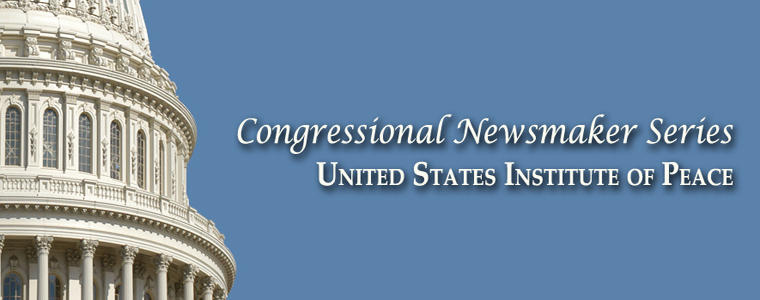Effective Foreign Assistance and National Security: A View from Congressman Adam Smith
A USIP Congressional Newsmaker Series Event
Congressman Adam Smith (D-WA), ranking member of the House Armed Services Committee, offered his views on how foreign assistance preserves and promotes the country’s national security.

Drawing from his extensive experience assessing U.S. military capabilities, strengths and needs, Congressman Smith spoke about the importance of strengthening American diplomacy and development capabilities, as well as defense.
Serving more than 16 years on the House Armed Services Committee and traveling extensively to zones of conflict, Congressman Smith discussed his unique insights into today’s foremost national security issues, including the ongoing conflict in Afghanistan and emerging trends across North Africa. Highlighting the need for a holistic approach to national security, Congressman Smith discussed the importance of foreign assistance -- poverty reduction, access to education, sustainable global markets, diplomatic engagement, good governance and other measures -- to enable our country’s pursuit of stable international partners. With increased budgetary pressures on all aspects of federal spending, Smith’s assessment of the appropriate balance for our national investment is pivotal.
Writing in Politico on June 10, 2013, Congressman Smith and Congressman Ander Crenshaw (R-FL) argued for greater attention to “the essential and cost-effective role of foreign assistance programs to both our national security and economy.” Congressmen Smith and Crenshaw are co-chairs of the Congressional Caucus for Effective Foreign Assistance, a bipartisan effort aimed at furthering the overall effectiveness of foreign assistance.
This event featured the following speakers:
Congressman Adam Smith
Member of the U.S. House of Representatives, Washington 9th District
Jim Marshall
Introductory Remarks and Moderator, President, U.S. Institute of Peace



